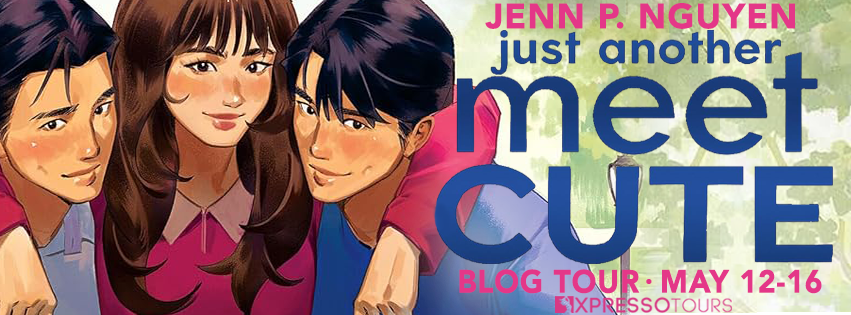For well over a century, the fortunes of Major League teams—and the fabric of baseball history itself—have been dramatically affected by the flawed decisions of officials. While the use of video replay in recent decades has reduced the number of bitter disputes, many situations remain exempt from review and are subject to swirling controversy. In the heat of the moment mistakes are often made, sometimes with monumental consequences.
Tuesday, July 7, 2020
Virtual Book Tour + #Giveaway: The Umpire was Blind! by Jonathan Weeks @GoddessFish
The
Umpire Was Blind!
by
Jonathan Weeks
GENRE:
Sports
history,
Biography
BLURB:
In
the words of former American League umpire Nestor Chylak, umpires are
expected to “be perfect on the first day of the season and then get
better every day.” Forced to deal with sullen managers and
explosive players, they often take the blame for the failures of
both. But let’s face it—umpires are only human.
For well over a century, the fortunes of Major League teams—and the fabric of baseball history itself—have been dramatically affected by the flawed decisions of officials. While the use of video replay in recent decades has reduced the number of bitter disputes, many situations remain exempt from review and are subject to swirling controversy. In the heat of the moment mistakes are often made, sometimes with monumental consequences.
For well over a century, the fortunes of Major League teams—and the fabric of baseball history itself—have been dramatically affected by the flawed decisions of officials. While the use of video replay in recent decades has reduced the number of bitter disputes, many situations remain exempt from review and are subject to swirling controversy. In the heat of the moment mistakes are often made, sometimes with monumental consequences.
Excerpt:
JOE
DiMAGGIO’S 56-GAME HITTING STREAK
…“The
Streak” was in serious jeopardy on multiple occasions. In fact,
DiMaggio extended it during his final plate appearance nearly a dozen
times. But never was he more in danger of losing it than on June 10
at Chicago’s Comiskey Park. After a pair of groundouts and an
infield pop-up, the Yankee icon came to bat in the seventh inning
against right-hander Johnny Rigney, who was one of Chicago’s top
hurlers in those days. DiMaggio smashed a sizzling grounder to third,
where the sure-handed Dario Lodigiani was stationed. “Lodi” could
only block it with his body, but he recovered in time to nail the
Yankee centerfielder at first by a quarter of a step. Fortunately for
DiMaggio, first base umpire Steve Basil saw things differently,
making a “safe” call on the play.
Basil,
who had turned to umpiring after his playing career stalled out at
the Class-D level, was in his sixth year of major league service.
Though generally even-tempered, he was not afraid to assert his
authority when his calls were held in question. Never was this more
apparent than in June of 1938, when he tossed three members of the
St. Louis Browns out of a game for arguing balls and strikes.
According
to AL arbiter Joe Rue, Basil was a bit of a tattletale who was
constantly trying to curry favor with MLB officials. In particular,
he had established intimate relationships with umpire supervisor
Tommy Connolly and AL president William Harridge. “Basil was always
playing up to Connolly,” Rue asserted bitterly. “And he’d run
to Connolly and Harridge with everything.”
There
was no need to seek the counsel of league officials on the date in
question. In fact, the White Sox hardly protested at all as
DiMaggio’s streak was extended to twenty-five games. Basil’s call
proved to be of monumental importance when Joe D. grounded into a
double play in his final at-bat of the day. Had Basil made the
correct decision, “The Streak” would have been divided into two
roughly equal halves—impressive, for sure, but not exactly the
stuff that legends are made of.
The
events of July 17, 1941, have attained an almost mythical quality.
DiMaggio had pushed his streak to fifty-six games and was on his way
to Cleveland’s Municipal Stadium in a cab when the driver,
recognizing the iconic outfielder and his teammate Lefty Gomez, said
ominously: “I got a feeling if you don’t get a hit in your first
at-bat today, they’re going to stop you.” (Several versions of
the quote exist) Flabbergasted, Gomez snapped: “Who the hell are
you? What’re you trying to do—jinx him?”
…Gomez
might have been on to something.
The
jinx appeared in the form of Indians third baseman Ken Keltner, who
made a pair of spectacular stops to rob DiMaggio. “The Streak”
ended that day and “Joltin’ Joe” hit safely in his next 16
games. Many years after the fact, he claimed to have had an encounter
with the mysterious Cleveland cab driver. “Now this is thirty years
later,” DiMaggio asserted. “He apologized and was serious. I felt
awful. He might have been spending his whole life thinking he had
jinxed me, but I told him he hadn’t. My number was up.”
Interview
with Jonathan Weeks
For
those interested in exploring the subject or theme of your book,
where should they start?
One
of my favorite chapters in The Umpire is Blind! covers some of
the questionable calls made by umpires in the World Series. There are
a lot of good books out there on the topic. Two of my favorites were
written by Eric Enders and Josh Leventhal.
How
did you become involved with the subject or theme of your book?
I
have been watching baseball since I was in elementary school. Some of
the decisions made by umpires have literally altered the course of
baseball history. While it’s easy to get angry at officials when
they make mistakes, I try to keep in mind that they are under immense
pressure to make the correct call every time. Unfortunately, nobody’s
perfect. I firmly believe that the use of instant replay to challenge
the judgments of umpires has changed baseball in a positive way.
What
were your goals and intentions in this book, and how well do you feel
you achieved them?
When
I started this project, I fully expected to be very critical of
umpires. But as the book progressed, I found myself taking a
sympathetic stance. Umpires work in a toxic environment, taking a lot
of abuse from players, managers and fans. Art Rosenbaum of the San
Francisco Chronicle once wrote that: "An umpire is a loner.
The restraints of his trade impose problems not normally endured by
players, coaches, management, press and others connected with
organized baseball. He is a friend to none. More often, he is
considered an enemy by all around him, including the fans in the
stands who threaten his life." Given the undeniable truth in
those statements, I find it difficult not to empathize with umpires
to a great extent.
Anything
you would like to say to your readers and fans?
Thanks
for following my work! I always do my best to write books that are
interesting and fun.
What
did you enjoy most about writing this book?
I
enjoy writing about baseball in the early days. The game was so
different then. Rules were unrefined, players were more colorful, and
unusual things happened on the diamond all the time. I was genuinely
surprised by some of the information I uncovered while researching
this book. One of the stories I found most unusual was the ban on
warm-up pitches imposed by American League president Ban Johnson in
1911. When Boston Red Sox pitcher Ed Karger tried to sneak a few
practice throws in one afternoon, Stuffy McInnis of the Philadelphia
A’s stepped into the batter’s box and drove one of Karger’s
soft-tosses to the outfield wall. This happened between innings when
most BoSox players hadn’t even taken their positions in the field
yet. The umpires on duty allowed McInnis to round the bases with an
inside-the-park homer. The run actually counted! I can’t imagine
anything like that happening today.
Can
you tell us a little bit about your next books or what you have
planned for the future?
I’ve
always been a baseball fan, but I also love hockey. I never had a
chance to play it since I was always somewhat wobbly on skates. I was
pretty good at moving forward and backward, but the stopping part was
problematic for me. I have a lot of respect for anybody who can carry
and shoot a puck while absorbing crushing hits from opponents at high
speeds. My favorite team is the Boston Bruins and I finally got
around to writing a book about their greatest players. It’s being
released next year through McFarland Publishers.
How
long have you been writing?
I
started drawing my own comics when I was around six or seven
years-old, stealing a most of the storylines from the ones I had
read. Since then, I have tried my hand at screenplays, novels, short
stories, poetry, and children’s books. I finally had a breakthrough
writing sports biographies. It has become an area of expertise for
me.
AUTHOR
Bio and Links:
Weeks
spent most of his life in the Capital District region of New York
State. He earned a degree in psychology from SUNY Albany. In 2004, he
migrated to Malone, NY. He continues to gripe about the frigid winter
temperatures to the present day. He has published several books on
the topic of baseball. He would have loved to play professionally,
but lacked the talent. He still can't hit a curve ball or lay off the
high heat. In the winter months, he moonlights as a hockey fan.
Giveaway:
$25 Amazon/BN GC
Follow the tour and comment; the more you comment, the better your chances of winning.
Subscribe to:
Post Comments (Atom)





























































.jpg)











5 comments:
Thanks for hosting! Readers, the giveaway is a $25 Amazon/BN GC.
Which character was most fun to write for?
Sounds like a great read, thanks for sharing it with us.
thanks for hosting my tour! I appreciate the positive input from readers and enjoy interacting.
In response to Bernie Wallace's Question, I most enjoyed writing about all the World Series games. I have always been fascinated by the early days of baseball. The first few decades of the 20th century are my favorite years.
Post a Comment